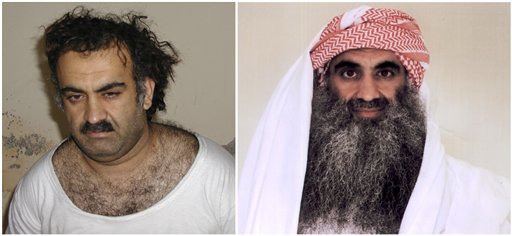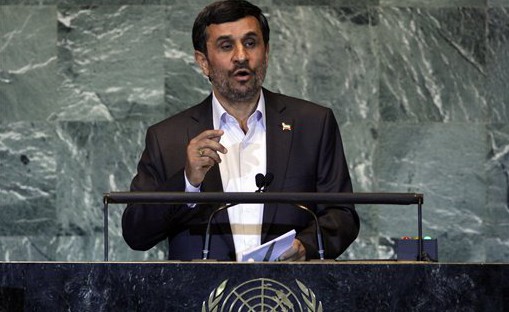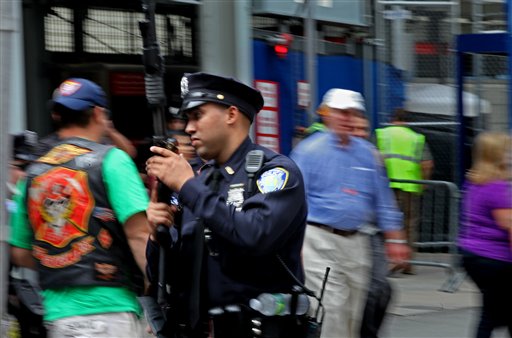
“You give us 22 minutes, we’ll give you the world.”
As the sun rose and cast a new day’s light onto Manhattan on Sept. 12, 2001, the chaos of the previous day took on new life. The buildings were already gone, and smoke still permeated the New York City air. Normally noisy and frenetic by sunrise, the great city was stunned, like a boxer on the canvas after a massive blow, looking up through blurred vision. The streets were silent. Papers blew through with the morning winds. When the Towers had fallen, millions of bits of paper fell to the ground like snow with the ash and smoke.
Police and military had taken the place of commuters. An armored personnel carrier crept slowly down Seventh Avenue, pausing near the Long Island Rail Road entrance at Pennsylvania Station before continuing south. Construction sites along the route downtown were devoid of any progress. Closer to the site, which was being called Ground Zero, the noise picked up. Thousands of workers were busy on the pile, trying to find anyone who might have survived the epic destruction. Construction trucks hummed by, and the rhythm of machinery was in the background.
On a corner of Canal Street, blocks from the scene, a white box truck sat in a small lot. It was surrounded by a group of men—firemen, cops and construction workers, all huddled about its cab. This group was inside the perimeter, playing important roles in the massive effort the city put forth to respond to the attacks. They listened intently to the radio, which sent forth sounds broadcast by 1010 WINS. Since the previous morning, WINS had done nothing but tell the people of NYC what had happened in their city, Washington, D.C. and Pennsylvania. The narrow streets created a reverb chamber, and the voice of a female anchor echoed, giving her words a powerful resonance and afterlife. For the weeks and months to follow, the same scene would play out all across Manhattan.
Sept. 11 was a crucial moment in journalism: It is the most covered event in history, and its timing in the early 21st century lent itself to both traditional media and emerging ones. But in the glut of the coverage, 1010 WINS stood out as a singular voice for New Yorkers. As the attacks unfolded, the station provided raw, unfettered coverage by and for New Yorkers. Some reports were filed by seasoned journalists, others by station employees who were not versed in journalistic rhetoric. These reports represent marvelous works of reporting in the face of catastrophe, rife with raw, visceral reaction and emotion.
“The thing about WINS is, our listeners know what to expect,” says WINS News Director Ben Mevorach. “Our broadcast is steeped in routine, so when people turn to 1010 WINS and they do not hear what they expect to hear, they know they have to listen.”
On Sept. 11, at around 8:30 a.m., they did have to listen. And the staff of New York’s most-listened-to news station found themselves the compass of a city caught off guard and suddenly lost. People were dead. People were missing.
But the city would survive, and WINS would be there every painful step of the way.
“Today, we’re going to make history.”
Rising to leave his home in New Jersey well before most of the world had even hit the snooze button, John Montone was headed for what should have been a pretty straightforward day. A veteran reporter for New York’s 1010 WINS radio since 1982, he had to head to a polling place at a school in upper Manhattan to cover former NYC Advocate Mark Green casting a vote for himself in the 2001 Democratic Primary. Green was seeking to fill the seat that was to be vacated by outgoing Mayor Rudolph Giuliani. Montone had seen the dog-and-pony show connected to campaigns many times, and this one looked no more exciting.

Lee Harris, 1010 WINS news anchor, was on the air for the first couple of hours the morning of Sept. 11. He made the bold assumption that we were under attack.
Green stepped from the voting booth and declared, “Today, we’re going to make history.”
Montone laughed to himself. It seemed like a typically grandiose statement for a politician on Election Day. He headed to his truck to edit the recording of his report and send it over to the station, which was located in Midtown. Before he left the scene, though, Montone went back into the school and looked for a men’s room. On his way, his pager went off. It went off again. And again. Whatever it was would have to wait a few minutes, until nature’s call had been heeded.
Then, Montone made his way back to his truck and called the station.
“You have to get downtown,” said Mark Mason, the former executive editor at WINS. “A small plane has hit the World Trade Center.”
Montone turned on the radio and heard anchor James Faherty proclaim as much over the air.
Today, Montone sits in an office at 1010 WINS’ new digs on Hudson Street, just blocks away from where the Towers once stood. This year marks the eighth anniversary of the attacks, but he has listened to recordings of his reports just once in all that time. The sunlight streams into the office as he recounts the landmarks of the day, and how he went about being a reporter, and then fighting for his life. A pair of sunglasses—his trademark—sits on his head, but not covering his eyes.
“These sunglasses were given to me by my son, Lt. Michael Montone, who is currently serving [with the Marines] in Iraq,” Montone says. “We hope to have him home in a month.”
Mevorach sits across the desk from Montone. Mevorach, another stalwart voice of the 1010 WINS news staff, has been with the station since 1994, first as the Long Island reporter, then a full staff member and finally in his current role. He does not exhibit the same seen-it-all swagger as Montone, although he has seen quite a bit himself. He chooses his words carefully.






